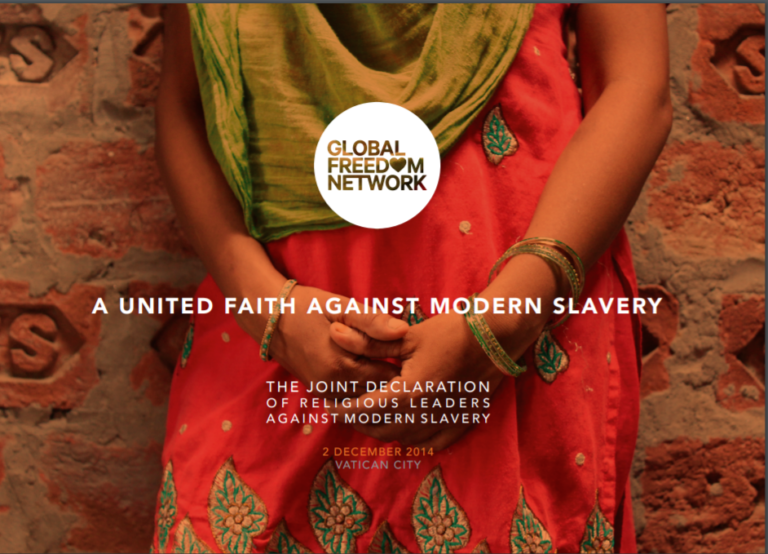Modern slavery in all of its guises – such as human trafficking, forced labour, sexual exploitation and organ trafficking – is endemic in many countries. It often preys on society’s most vulnerable people, stripping them of their rights to freedom and dignity. It usually involves money, corruption and widespread abuses of power.
It has long been recognised that there can be no single way to end slavery; it is a crime that must be tackled at all levels, through all networks and with a broad range of resources. It must be challenged at its roots as well as dissolved in its myriad of branches and channels.
But how to reach into the many countries and communities that harbour modern slavery and put an end to it? And how to spread the message far and wide that modern slavery is a corrupt and evil abuse of core human values? The answers may well lie in the coming together of religions in a united front against slavery. If the teachings and application of various faiths reach up to 90 per cent of the world’s population, then there can be no greater way to influence the vast majority of the world’s population.
For it will be through the shifting of cultural norms and behaviours, complementing judicial, supply chain and international protocol enforcements, that sustained change will occur.
child labour

